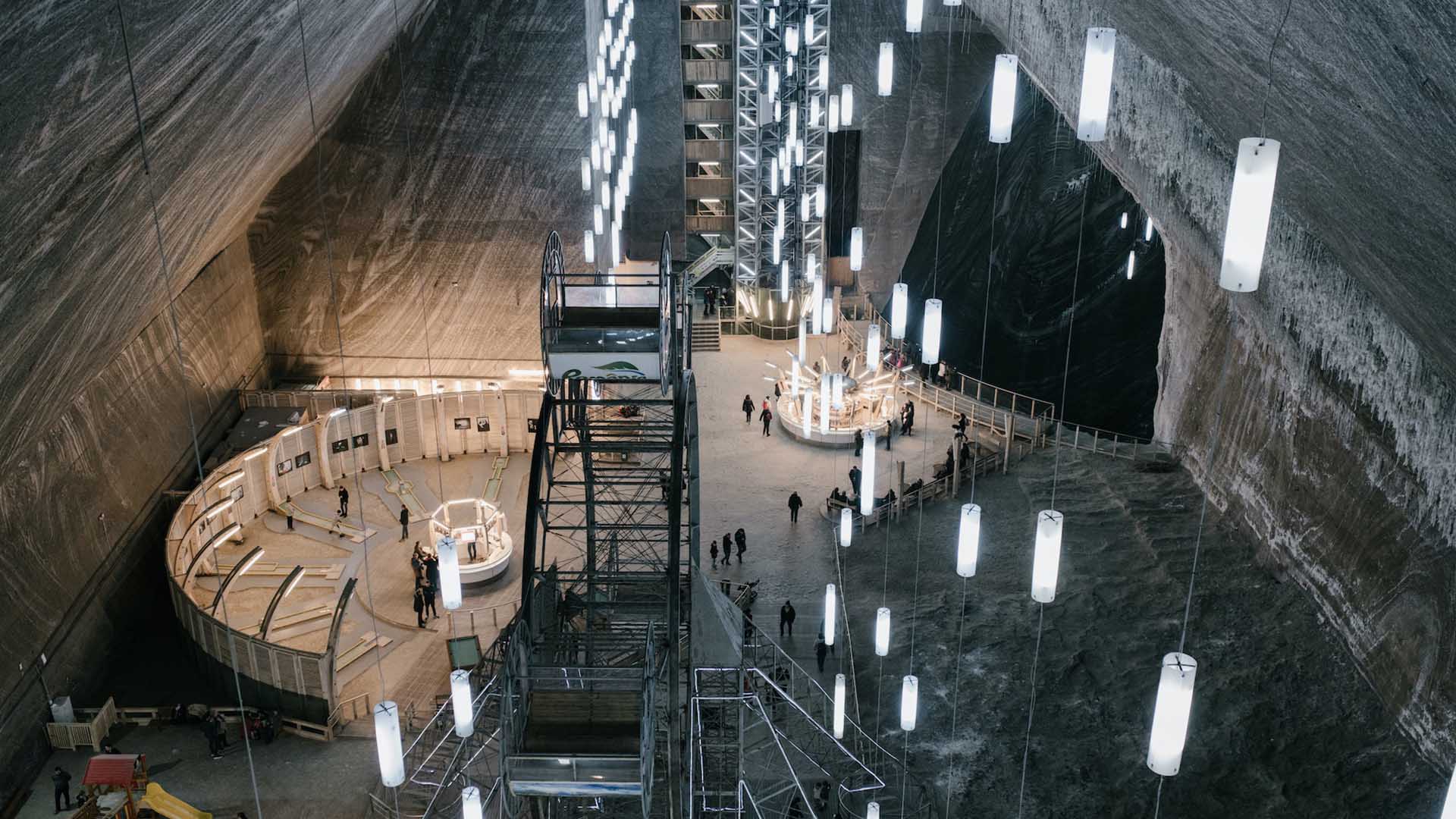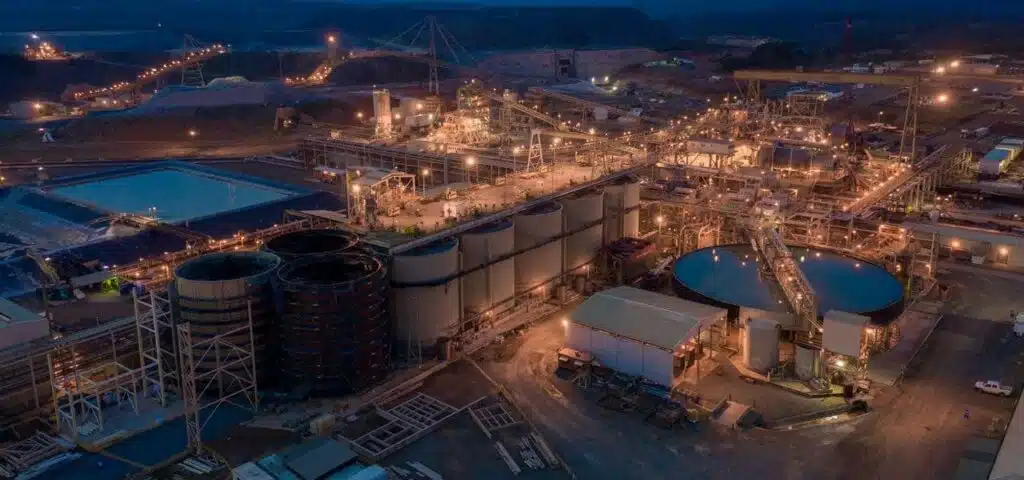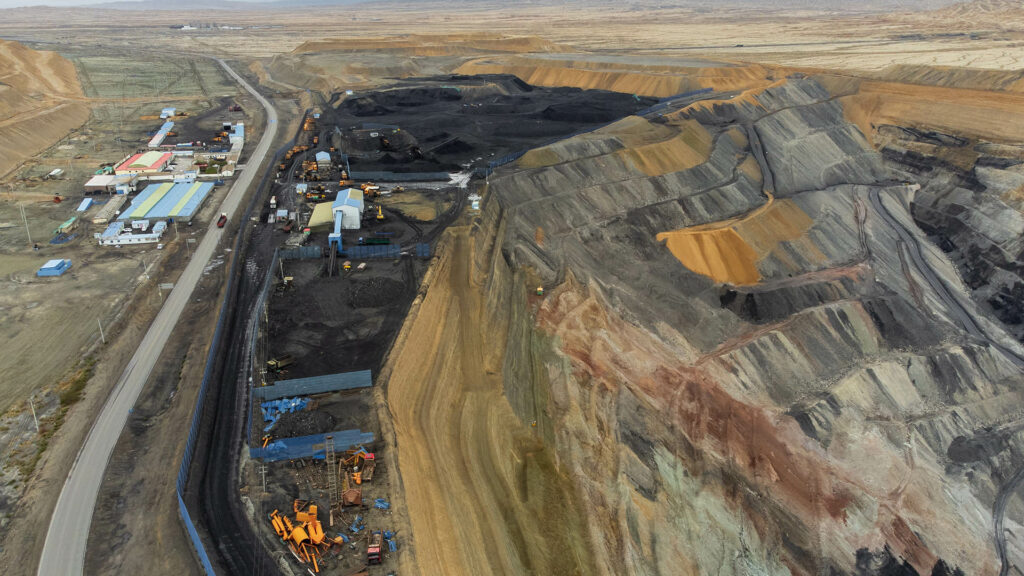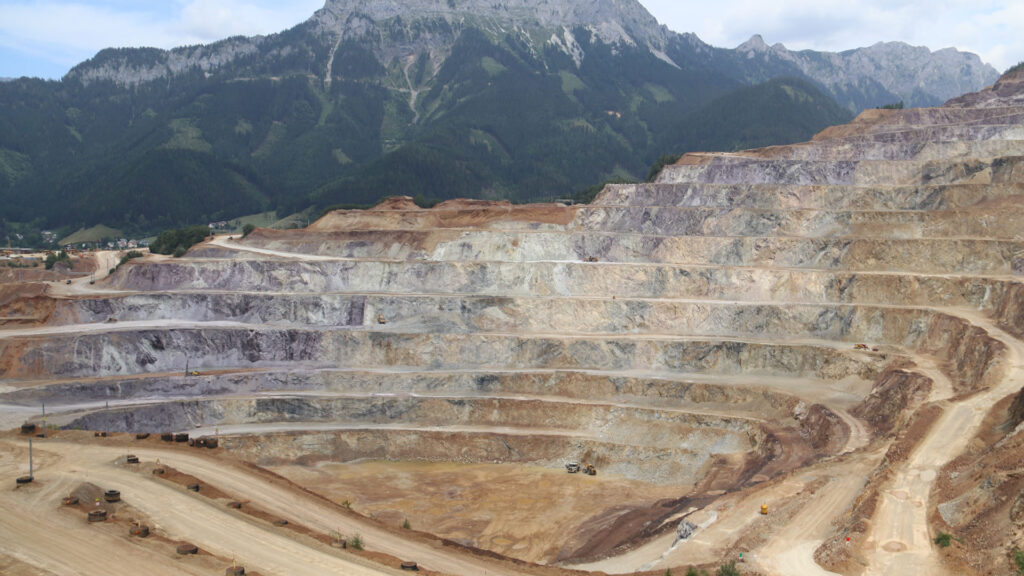|
Getting your Trinity Audio player ready...
|
When we think of mining, we often associate it with environmental destruction and exploitation. However, have you ever considered the positive effects that mining could have on the economy?
Mining is a crucial industry that has been around for centuries. It provides important resources that are used in various sectors, including construction, energy, and technology. Despite this, mining has often been viewed negatively due to the environmental impacts it can have.
However, it’s important to consider the economic benefits of mining. The industry can create jobs and generate revenue for governments, which can then be used to fund essential services and infrastructure. Countries with abundant natural resources, such as oil, gas, and minerals, often see significant economic contributions from mining, leading to high living standards, job creation, and substantial export revenues.
In this article, we will explore the positive effects of mining on the economy and why it’s an important industry to support.
Overview of the Mining Industry
The mining industry is a cornerstone of the global economy, playing a pivotal role in the extraction of valuable minerals, metals, and other geological materials from the earth. This diverse sector encompasses various types of mining operations, including underground mining, surface mining, and subsurface mining. Each method employs distinct techniques and technologies to efficiently extract raw materials.
Mining companies are at the forefront of this industry, utilizing advanced machinery and processes to unearth resources that are essential for numerous industries. For instance, the raw materials extracted through mining are crucial for energy production, construction, and manufacturing. Whether it’s coal for power plants, iron ore for steel production, or rare earth elements for electronics, the mining industry provides the foundational materials that drive modern economies.
Mining Industry
Mining is the process of extracting valuable minerals or other geological materials from the earth for commercial purposes. Mining processes can generate economic growth and community development, while simultaneously causing environmental degradation, pollution, and contributing to climate change.
Mining is an important industry that plays a significant role in the economy of many countries. While there are some negative effects associated with mining, there are also several positive effects that are often overlooked.
In this section, we’ll explore 9 positive effects of mining on the economy, from job creation to increased tax revenues and more.
So let’s dive in and take a closer look at the benefits of this important industry.
Importance of Mining
Mining is indispensable for the production of many essential goods and services that we rely on daily. The industry supplies the raw materials necessary for energy production, transportation, and communication, making it a vital component of economic infrastructure. Beyond its economic contributions, mining operations also play a significant role in regional development.
Mining companies often spearhead community development projects, investing in local infrastructure, healthcare, and education. These initiatives not only improve the quality of life for residents but also foster economic growth by creating jobs and stimulating local businesses. For example, the construction of roads and schools funded by mining companies can have long-lasting positive impacts on local communities.
1. Job Creation and Employment Opportunities
One of the significant benefits of mining is the creation of employment opportunities. The mining industry requires a diverse workforce, ranging from skilled engineers and geologists to machinery operators and support staff.
This sector often provides both direct and indirect employment, positively impacting local communities and regional economies.
Direct employment in mining involves jobs within the mining companies themselves, such as miners, technicians, engineers, and administrative personnel. These positions offer competitive wages and benefits, attracting skilled workers and contributing to local economic stability.
Moreover, mining operations often require a range of support services, such as transportation, logistics, and maintenance, which further generate employment opportunities.
The mining industry supports various related sectors by creating jobs, generating revenue, and fostering growth opportunities. It interacts with and bolsters industries such as equipment manufacturing, engineering, and transportation services, while also providing essential materials for national security and health-related technologies.
The Marigold Mine in Nevada, United States, exemplifies the job creation potential of the mining industry. The mine, operated by SSR Mining, employs over 380 workers directly, providing them with stable and well-paying jobs.
Mari Goldmine
The mine’s operations have created numerous indirect jobs in the surrounding communities, including suppliers, contractors, and service providers. This job creation has had a positive ripple effect, boosting the local economy and supporting businesses in the region.
The employment opportunities generated by mining have a multiplier effect on the economy. As individuals earn income from their jobs, they contribute to local spending, supporting small businesses, retail sectors, and service industries. This increased economic activity further stimulates job creation in various sectors, creating a virtuous cycle of employment and income generation.
2. Economic Growth and Development
The Mining and metals sector plays a vital role in promoting economic growth and development in both developed and developing countries. The extraction and processing of minerals contribute to the expansion of the industrial sector, diversification of the economy, and enhancement of productivity.
By providing essential raw materials for manufacturing, construction, and energy production, mining acts as a catalyst for economic progress. Additionally, the extraction of fossil fuels plays a significant role in energy production and economic growth, meeting a substantial portion of global energy demand.
The growth of mining activities often leads to the establishment of downstream industries, creating a ripple effect throughout the economy.
For example, the demand for mining equipment and machinery stimulates the manufacturing sector, generating additional employment and revenue. Moreover, the development of mining-related infrastructure, such as power plants and transportation networks, supports other sectors and facilitates economic integration.
The economic transformation of Chile, driven by its mining industry, exemplifies the positive impact of mining on economic growth. With abundant copper reserves, Chile has become the world’s largest copper producer.

The revenue generated from copper exports has fueled the country’s economic development, allowing investments in education, healthcare, and infrastructure. The mining sector’s growth has also attracted foreign direct investment and technology transfer, further boosting economic diversification and innovation.
3. Foreign Exchange Earnings and Balance of Trade
One significant benefit of mining is its contribution to a country’s foreign exchange earnings and the balance of trade.
It is crucial to advocate for fair government policies and corporate practices within the oil, gas, and mining industries to ensure sustainable development and community involvement in decision-making processes.
Mining activities often involve the extraction and export of valuable minerals and resources, which can generate substantial revenue from international markets. These earnings contribute to a country’s foreign exchange reserves, enhancing its ability to engage in international trade and finance.
Mineral exports can significantly impact a nation’s balance of trade by increasing exports and reducing import dependency. The revenue generated from mining exports helps to offset trade deficits, improving the overall trade balance. This, in turn, strengthens the country’s economic stability and reduces reliance on external sources of financing.
South Africa, one of the world’s leading mining nations, has experienced the positive effects of mining on its balance of trade. The country is rich in mineral resources, including gold, platinum, and diamonds, which have been major contributors to its foreign exchange earnings.

The export of these minerals has played a crucial role in South Africa’s trade balance, contributing to its economic growth and stability.
For resource-rich countries, mining can be a significant source of foreign exchange earnings. For example, in 2020, Australia’s mining industry accounted for over 75% of the country’s total merchandise exports.
4. Technological Advancements and Innovation Spillover
mining industry has been a catalyst for technological advancements and has sparked innovation that extends beyond its sector.
Mining operations require advanced equipment, machinery, and processes to extract and process mineral resources efficiently. As a result, mining companies invest in research and development, leading to the development of cutting-edge technologies.
Collaboration between mining companies and technology firms has been instrumental in driving innovation.
For example, the integration of automation, robotics, and artificial intelligence (AI) in mining operations has enhanced productivity, safety, and cost-effectiveness. These technological advancements not only benefit the mining sector but also find applications in other industries such as manufacturing, construction, and healthcare.
One notable example of innovation spillover from mining activities is the development of autonomous haul trucks. These self-driving trucks, initially designed for mining purposes, have paved the way for autonomous vehicles in various industries.
The experience gained from deploying autonomous haul trucks in mining operations has contributed to advancements in autonomous transportation, revolutionizing logistics, and transportation systems globally.
The mining sector’s commitment to innovation and technological advancement continues to drive efficiency and productivity gains, contributing to overall economic development and competitiveness. By embracing technological advancements, mining companies can optimize resource extraction, reduce environmental impact, and improve operational efficiency, leading to long-term sustainability.
5. Infrastructure Investment
Mining activities often require substantial infrastructure development, which in turn contributes to economic growth and development.
The construction and maintenance of critical infrastructure in mining regions have a positive impact on the local economy and the overall socio-economic well-being of the community.
One significant aspect of infrastructure investment in mining regions is the improvement of transportation networks. To transport extracted minerals from remote mining sites to processing facilities or export terminals, transportation infrastructure such as roads, railways, and ports needs to be developed or upgraded.
These infrastructure projects create job opportunities, stimulate economic activity, and facilitate the efficient movement of goods and people.
Mining companies often invest in water treatment facilities, ensuring access to clean water for local communities. Sanitation infrastructure, including waste management systems, is also enhanced, promoting public health and environmental sustainability.
The construction industry and related sectors also benefit from the infrastructure investment associated with mining. Increased demand for construction materials, such as cement, steel, and building supplies, stimulates economic activity, creates employment opportunities, and drives growth in the construction sector.
Contribution to Government Revenues and Community Development Projects
Mining plays a crucial role in contributing to government revenues and funding public services, which are essential for socioeconomic development. Through various mechanisms such as taxes, royalties, and other fiscal instruments, the mining industry generates substantial revenue streams that support public expenditure and the provision of vital services to citizens.
One significant contribution of the mining sector to government revenues is through tax payments. Mining companies are subject to corporate income taxes, which generate significant income for governments.
Additionally, governments often implement specific mining-related taxes or levies, such as resource rent taxes or royalties, which are calculated based on the volume or value of minerals extracted. These revenue streams contribute to public coffers and can be allocated to finance various public goods and services.
Furthermore, the revenue generated from mining activities allows governments to allocate funds for crucial public services, including healthcare, education, and infrastructure development. Investments in healthcare systems lead to improved access to quality healthcare services for communities residing in mining regions.
Similarly, funds allocated to education support the development of educational institutions, training programs, and scholarships, promoting human capital development and empowering local communities.
8. Community Development
Mining companies have a profound responsibility to contribute to the development of the communities in which they operate. This commitment often manifests through substantial investments in community development projects, such as building schools, hospitals, and other critical infrastructure. By providing employment opportunities and training programs, mining companies help to uplift local residents, equipping them with the skills needed for sustainable livelihoods.
Moreover, responsible mining practices are essential to minimize the environmental impacts of mining operations. By adhering to stringent environmental regulations and implementing best practices, mining companies can ensure that the benefits of mining are shared equitably among all stakeholders. This includes efforts to rehabilitate mined land, conserve water resources, and reduce emissions, thereby promoting environmental sustainability.
7. Economic Resilience and Stability
One of the notable positive effects of mining on the economy is its contribution to economic resilience and stability. The presence of a robust mining sector provides countries with a stable revenue source, counteracting economic downturns and enhancing overall economic resilience.
Diversification of the economy is a key factor in economic resilience, and the mining sector plays a vital role in achieving this diversification.
During periods of economic downturn or recession, mining operations often continue to generate revenue, providing stability to the economy. The steady income stream from mining activities can help offset declines in other sectors and contribute to maintaining overall economic stability.
This stability is especially crucial for countries heavily dependent on commodity exports, as mining revenue acts as a buffer against external shocks, such as fluctuating commodity prices or global economic crises.
An example of the positive effects of mining on economic resilience and stability can be seen in the case of Botswana. The country’s mining sector, particularly the diamond industry, has played a pivotal role in its economic development and stability.

Botswana is known for its rich diamond deposits, which have been a major source of revenue and foreign exchange earnings for the country.
The government of Botswana has effectively managed its diamond resources by implementing sound governance and transparent policies, ensuring a sustainable and responsible approach to mining. This has contributed to the country’s economic resilience and stability.

During periods of economic uncertainty, such as global recessions or fluctuations in commodity prices, Botswana’s diamond industry has acted as a stabilizing force. The steady income generated from diamond exports has provided a reliable revenue stream for the government, enabling it to maintain essential public services, invest in infrastructure development, and implement social welfare programs.
Environmental Stewardship and Responsible Mining Practices
While the economic benefits of mining are significant, it is equally important to address the environmental impacts and promote sustainability within the industry. Mining companies are increasingly recognizing the need for environmental stewardship and implementing measures to minimize their ecological footprint.
Adoption of responsible mining practices and compliance with stringent environmental regulations are essential for mitigating the negative environmental effects of mining operations. This includes proper waste management, water conservation, and emissions control.
Mining companies are investing in advanced technologies and best practices to reduce their environmental impact, such as using innovative extraction techniques, implementing reclamation plans, and rehabilitating disturbed land areas.
Investment in environmental protection and land reclamation is another crucial aspect of sustainable mining. Companies allocate resources to restore and rehabilitate mining sites after operations cease, ensuring that land is returned to a productive or environmentally sustainable state.
This includes re-vegetation efforts, soil stabilization, and the establishment of wildlife habitats. By reclaiming land, mining companies contribute to preserving biodiversity, conserving ecosystems, and maintaining the natural balance of the environment.
9. Global Trade and Investment Attraction
The positive effects of mining on the economy extend beyond domestic boundaries, playing a vital role in global trade and attracting foreign investment. Mining exports contribute significantly to a country’s international trade, fostering economic growth and strengthening its position in the global market.
The extraction and export of mineral resources create opportunities for international trade by supplying raw materials to other countries. This stimulates economic activity and generates foreign exchange earnings, which are crucial for balancing trade deficits and promoting economic stability.
Mining exports can include various commodities such as metals, minerals, gemstones, and energy resources, catering to the diverse needs of global industries.
Foreign direct investment (FDI) is another significant benefit derived from the mining sector. Countries rich in mineral resources often attract foreign investors seeking opportunities for resource exploration and development.
Mining projects require substantial capital investment, and foreign investors bring in expertise, technology, and financial resources to support these ventures. This influx of foreign investment stimulates economic growth, creates job opportunities, and drives technological advancements in the mining sector.
Integration into global value chains is a key outcome of mining exports. By supplying raw materials to global industries, mining contributes to the production and manufacturing processes of various sectors, such as automotive, construction, electronics, and energy.
This integration enhances a country’s competitiveness in global markets and facilitates economic diversification beyond reliance on a single industry.
12. A Balanced Approach
A balanced approach to mining is crucial to ensure that the industry contributes to sustainable development. This involves harmonizing economic, social, and environmental considerations. Mining companies must adopt responsible mining practices, invest in community development projects, and strive to minimize environmental impacts.
Governments and regulatory bodies also play a pivotal role in this balanced approach, ensuring that mining operations are conducted responsibly and sustainably. By fostering collaboration between the mining industry, local communities, and regulatory authorities, we can achieve a model of mining that supports economic growth while safeguarding environmental and social well-being.
By embracing a balanced approach, the mining industry can continue to be a vital driver of economic prosperity, ensuring that the benefits of mining are shared equitably and sustainably among all stakeholders.
Mining Operations a Force for Economic Good
In conclusion, it is important to acknowledge that while mining operations may have certain negative implications for the environment, their substantial positive impact on the economy cannot be overlooked.
Mining plays a crucial role in generating employment opportunities and income for numerous individuals and communities, catalyzing economic growth. Additionally, it provides vital support to various related industries, creating a multiplier effect on the overall economy.
While it is essential to address the environmental concerns associated with mining, advancements in technology and the implementation of stringent regulations offer avenues for minimizing its adverse effects.
By embracing sustainable practices and adopting responsible mining approaches, we can strike a balance between economic development and environmental stewardship.
It is imperative to appreciate and recognize the valuable contributions that mining brings to our economy, while simultaneously striving for continuous improvement in sustainability efforts. By fostering innovation, promoting collaboration, and prioritizing the well-being of both the economy and the environment, we can ensure that mining remains a vital driver of economic prosperity for years to come.
Let us seize the opportunity to leverage the benefits of mining while advocating for sustainable practices that preserve our natural resources and protect the well-being of future generations. By embracing responsible mining practices, we can unlock the full potential of this industry and pave the way for a prosperous and sustainable future.
References:
World Bank. (2019). The Growing Role of Minerals and Metals for a Low Carbon Future. Retrieved from https://openknowledge.worldbank.org/handle/10986/32448
International Council on Mining and Metals. (2021). Role of Mining in National Economies: Eighth Edition. Retrieved from https://www.icmm.com/website/publications/pdfs/economic-contribution/Role-of-Mining-in-National-Economies-eighth-edition
United Nations Development Programme. (2020). Sustainable Development and Mining. Retrieved from https://www.undp.org/sustainable-development-and-mining
International Finance Corporation. (2019). Mining and Metals: Technological Innovation and Its Implications. Retrieved from https://www.ifc.org/wps/wcm/connect/Industry_EXT_Content/IFC_External_Corporate_Site/Industries/Mining+and+Metals/Technological+Innovation+and+Its+Implications/
World Gold Council. (2021). Responsible Gold Mining Principles. Retrieved from https://www.responsiblegold.org/wp-content/uploads/2021/05/RGMP-1812114-v1-RGMP-Gold-FINAL.pdf
United Nations Environment Programme. (2020). Making Mining Safe and Fair: Artisanal and Small-Scale Mining Initiative. Retrieved from https://www.unep.org/resources/report/making-mining-safe-and-fair-artisinal-and-small-scale-mining-initiative
International Trade Centre. (2020). Trade Map. Retrieved from https://www.trademap.org/
World Investment Report. (2021). United Nations Conference on Trade and Development. Retrieved from https://unctad.org/system/files/official-document/wir2021_en.pdf
International Council on Mining and Metals. (2022). Global Industry Associations. Retrieved from https://www.icmm.com/website/publications/pdfs/membership/ICMM-Membership-Directory
Mining Association of Canada. (2021). Towards Sustainable Mining. Retrieved from https://mining.ca/towards-sustainable-mining







